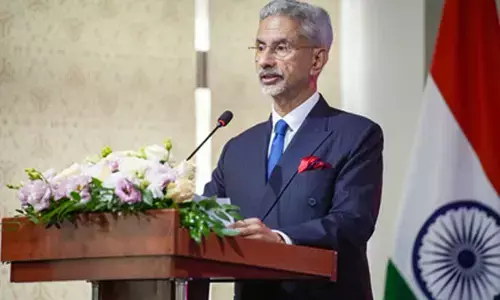The significance of soft skills in a globalised world

In today’s interconnected global landscape, soft skills have emerged as crucial determinants of personal and professional success.
In today’s interconnected global landscape, soft skills have emerged as crucial determinants of personal and professional success. Unlike hard skills, which are technical and job-specific, soft skills encompass interpersonal abilities, communication, adaptability, and problem-solving. The significance of these skills has grown exponentially with globalization, which has led to diverse and dynamic workplaces where collaboration across cultures and disciplines is essential.
One of the primary reasons soft skills are vital in a globalized world is their role in facilitating effective communication. With businesses and organizations operating across borders, the ability to convey ideas clearly and understand different perspectives is indispensable. Miscommunication can lead to conflicts, decreased productivity, and lost opportunities. Thus, employees who can navigate cultural nuances and communicate effectively are highly valued.
Moreover, teamwork and collaboration are at the heart of many modern enterprises. Projects often require input from individuals with varied expertise, and the ability to work harmoniously in diverse teams is a significant asset. Soft skills such as empathy, emotional intelligence, and conflict resolution enable smoother interactions and foster a collaborative environment, driving innovation and efficiency.
Adaptability and problem-solving are also critical in an ever-changing global market. The rapid pace of technological advancements and shifting economic landscapes demand professionals who can quickly adjust to new situations and devise creative solutions. Those with strong soft skills are better equipped to handle uncertainties and turn challenges into opportunities.
Education systems worldwide play a pivotal role in developing these essential soft skills. Traditionally focused on imparting academic knowledge, modern educational frameworks are increasingly recognizing the need to integrate soft skills training into curricula. Schools and universities are adopting holistic approaches that blend cognitive and non-cognitive skill development.
Experiential learning is one effective method employed by educational institutions to foster soft skills. Activities such as group projects, internships, and service-learning projects encourage students to engage in real-world scenarios where they must communicate, collaborate, and solve problems. These experiences build critical soft skills that are transferable to any professional setting.
Furthermore, incorporating courses on communication, leadership, and emotional intelligence into academic programs helps students develop a deeper understanding of these areas. Workshops, seminars, and extracurricular activities also provide platforms for students to practice and refine their soft skills in diverse settings.
The importance of soft skills in a globalized world cannot be overstated. They are key to effective communication, teamwork, adaptability, and problem-solving, all of which are essential in today’s diverse and dynamic work environments. Educational institutions play a crucial role in nurturing these skills, equipping students with the tools they need to thrive in a globalized economy. As the world continues to evolve, the emphasis on soft skills development will only grow, underscoring the need for comprehensive educational strategies that prepare individuals for the complexities of the modern world.



















